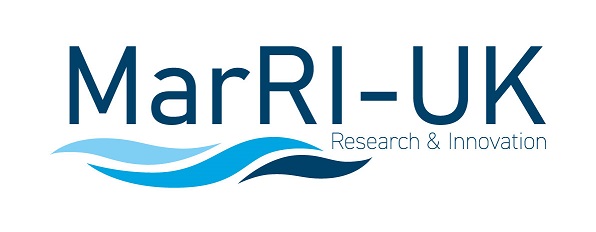16 September, 15:30 – 18:00, Abbey Room, Queen Elizabeth II Centre, London, SW1P 3EE
Join the University of Strathclyde with support of MarRI-UK to present the role of international collaboration and research for the transition to net zero shipping.
As the maritime sector accelerates efforts to decarbonise, international collaboration and research are more critical than ever in driving innovation and delivering scalable solutions. This event, hosted by Department Of Naval Architecture, Ocean & Marine Engineering (NAOME) at University of Strathclyde and MarRI-UK, will explore the vital role of global partnerships and coordinated research in supporting the transition to net zero shipping.
By bringing together experts from academia, industry, and government, the event aims to foster knowledge exchange, highlight successful case studies, and identify opportunities for future collaboration. Join us to be part of the conversation shaping the future of sustainable maritime transport.
Aimed outputs
- Shared understanding
- Identified Collaboration Opportunities
- Policy and Funding Recommendations
- Cross-Sector Networking
- Follow-up Actions and Commitments
Programme
| 15:30 – 16:05 Registration, Tea/Coffee |
| 16:05 – 16:15 | Welcome & Opening Remarks Welcome by host (Prof Evangelos Boulougouris, University of Strathclyde) Introduction to the session’s purpose: highlighting EU-funded collaboration as a driver for maritime decarbonisation |
| 16:15 – 17:00 | Session – 1 |
| Panel Session 1: Decarbonisation Technologies Moderator: Prof Evangelos Boulougouris (University of Strathclyde) Panel members: George Kouris (Alpha Marine Consulting), Vasili Savitski (Fraunhofer UK), James Lovett (Innovate UK), ROSA VILARIÑO (CorePower), Stylianos Papageorgiou (Lomar Labs), Lasse de Boer (Maersk) |
| 17:00 – 17:05 | Break |
| 17:05 – 17:50 | Session – 2 |
| Panel Session 2: Operations and Human Element Moderator: Dr Rafet Emek Kurt (University of Strathclyde) Panel members: Adam Parnell (Director, Chirp Maritime), Alan Jones (Human Safety & Risk Director, Lloyd’s Register), Martin White (CEO, Stream Marine Training / Intelligent Seas), Osman Turan (Professor at University of Strathclyde), Satu Lipponen (COO, PsyFyi) |
| 17:50– 18:00 | Closing Remarks by MarRI-UK MarRI-UK Academic Group Chair Prof. Alan Murphy (University of Southampton) Summary of key messages and takeaways, with encouragement for ongoing collaboration and dissemination |
Registration
There is limited tickets so please register here. For any questions please get in touch with us at marri-uk-dmem@strath.ac.uk.
Panelists Introduction
Panel 1 Decarbonisation Technologies
Panel Chair: Prof. Evangelos Boulougouris
Prof. Evangelos Boulougouris is the Royal Caribbean Group Professor of Safety of Marine Operations and Head of the Department of Naval Architecture, Ocean and Marine Engineering at the University of Strathclyde. With nearly three decades of expertise in naval architecture, ship safety, and decarbonisation, he is internationally recognised for his research and leadership in shaping the future of sustainable maritime transport.
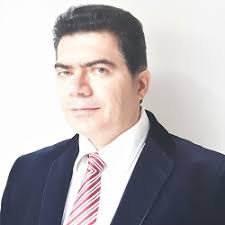
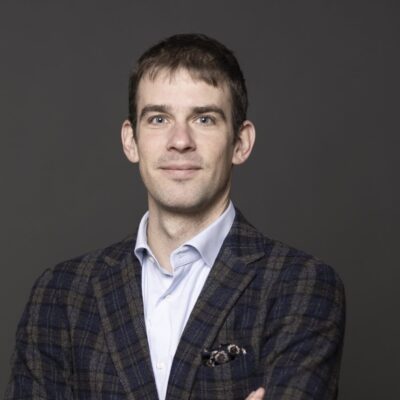
Lasse Normann de Boer (Maersk Fleet Technology) – Ship Owner
Lasse Normann de Boer is a Senior Naval Architect at Maersk Fleet Technology, working on early-stage concept development and maturation of novel and emerging technologies to support maritime decarbonisation. His work is characterised by close collaboration across Maersk’s technical, operational, regulatory, and strategic functions to ensure integrated and scalable solutions. In parallel, Lasse is seconded part-time to the Mærsk Mc-Kinney Møller Center for Zero Carbon Shipping, contributing to cross-industry research and innovation efforts aimed at accelerating the sector’s transition to net zero. His areas of focus include wind-assisted propulsion, electrification, and systems-level design, with a strong emphasis on aligning technical innovation with practical implementation, regulatory frameworks, and financial viability.
George Kouris (Alpha Marine Consulting) – Designer
George Kouris is detail-oriented professional with eight years of experience in the shipbuilding industry. Naval Architect and Marine Engineer in background, with specialization in marine systems integration and retrofitting. Currently serving as R&D Manager at Alpha Marine Consulting, where he has played a pivotal role in numerous retrofit projects and now leads EU endeavors with a primary focus on shipping decarbonization.
He has demonstrated proven expertise in managing EU-funded decarbonization projects and representing Alpha Marine Consulting as a technical delegate at industry forums.
A key contributor to the SEASTARS project, a flagship European Union initiative on shipping decarbonization, he brings a strong record of advancing sustainable solutions for the maritime sector.
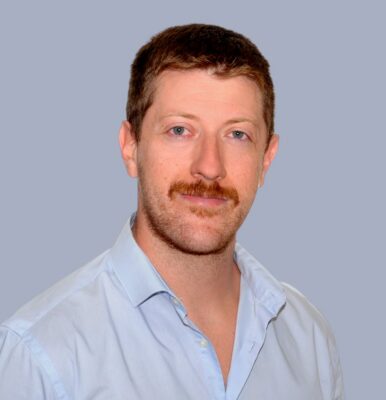
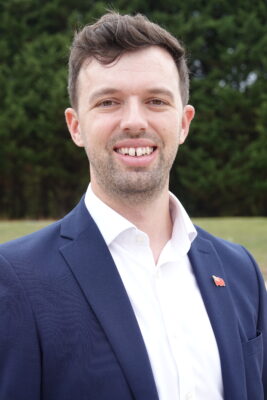
James Lovett (Innovate UK) – Funding body
James is the Innovation Lead for Maritime at Innovate UK, part of UK Research and Innovation (UKRI). He supports business led UK maritime research both domestically and overseas. He’s overseen £230m of research funding delivery for the UK’s maritime sector including the UK Department for Transport’s Clean Maritime Demonstration Competitions (CMDC) and the Zero Emission Vessel and Infrastructure (ZEVI) competition.
James joined Innovate UK after spending several years in the maritime industry. He’s a chartered engineer with technical background in maritime and aerospace, previously holding engineering roles at Babcock Marine and Atkins Aerospace.
Stylianos Papageorgiou (Lomar Labs) –innovation / deep-tech “venture lab”
Stylianos Papageorgiou is the Managing Director of lomarlabs, a venture lab with a mission to advance maritime innovation.
He is enthusiastic about trying new ideas and catalysing their deployment but keeps his feet firmly on the ground at all times, bridging optimism and creativity with results and realism. Prior to heading up lomarlabs Stylianos was Lomar Shipping’s Technical Director, through some challenging market cycles from 2015 to 2023, where he was responsible for the operational readiness and performance of the fleet (present and future). He developed his leadership skills managing teams based in London, Bremen and Singapore and oversaw all aspects of Technical Management including Crewing, Engineering, Safety, Quality, Compliance and Procurement. Before joining Lomar he was the Technical Manager of Odysea Carriers with whom he had worked for over 10 years. He has also worked with Siemens AG on Innovation Management in Munich and served the Hellenic Navy as a conscript Naval Engineer. He holds an Executive MBA in Innovation & Business Creation, an MSc & BEng in Marine Technology.
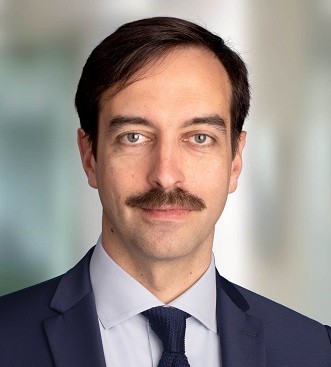
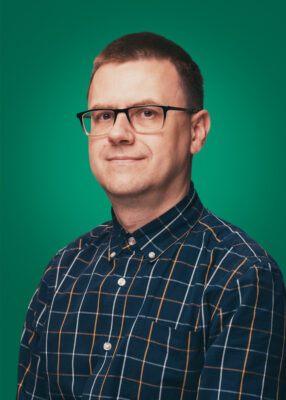
Dr. Vasili Savitski (Fraunhofer UK) – Research organisation
Vasili is a Senior Researcher at Fraunhofer UK, with over two decades of experience in laser system design and optical technologies. He holds a PhD in Optics from the Institute of Physics (Minsk, Belarus) and has led numerous high-impact projects funded by Innovate UK, ESA, EPSRC, and DASA. His expertise spans solid-state laser development, hyperspectral imaging, and quantum technologies, with applications in sensing, manufacturing, and space surveillance. Vasili has authored over 100 peer-reviewed publications and is a recognised leader in advancing photonics for industrial and scientific innovation.
ROSA VILARIÑO (Core Power UK) – Technology developer
Rosa is a Principal Naval Architect with over 15 years experience in the maritime industry. She has spent most of this time working in maritime consultancy providing advice on a wide range of floating assets general design, safety, stability and watertight integrity. Provided project management services for a range of projects liaising with Flags and Classification Societies as well as onsite shipyard supervision services, including conducting plan approval for compliance with owner’s specifications.
Since joining CORE POWER in 2024, participating in WNTI and NEMO (Maritime Regulations Working Group).
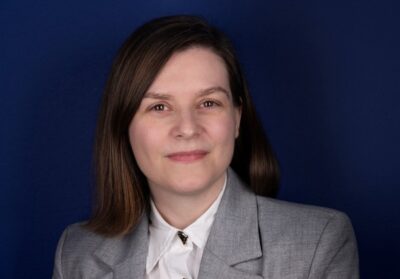
Panel 2 Operations and Human Element
Panel Chair: Dr Emek Kurt (University of Strathclyde – Maritime Human Factors Centre)
Dr. Kurt is a Reader at the University of Strathclyde. He is the Director of the renowned Maritime Human Factors and the Principal Investigator and Maritime Coordinator of the EU-funded SAFEMODE Project, which is the largest human factor project funded by the EU. Currently serving as the Knowledge Exchange Director at the Department of Naval Architecture, Ocean & Marine Engineering (NAOME) at the University of Strathclyde, Dr. Kurt actively promotes the practical use of human factors research in the maritime industry. He has been part of numerous research projects, including EU FP7 SILENV, EU FP7 SEAHORSE and EU FP7 EXCROSS, and has supported regulation development at the IMO. Dr. Kurt has been invited to provide his human factors expertise to key decision makers in various domains, such as EMSA and OCIMF.
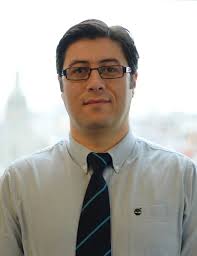
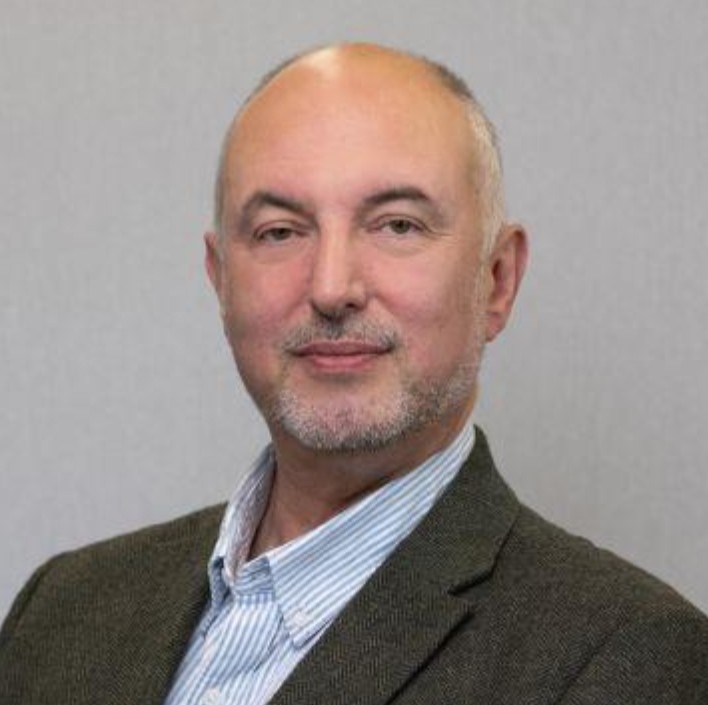
Alan Jones is the Director of Human Safety & Risk at the Lloyd’s Register Maritime Decarbonisation Hub. He has more than 30 years of Human Factors and Engineering knowledge through his experience in several key technical lead and senior management positions at various top tier companies, mainly focused on the aerospace and energy domains dealing with critical and high hazard operations. His experience has covered interactions with regulators, original equipment manufacturers, designers, operators, and government bodies, revolving around creating novel design and operational solutions, achieved through the implementation of Verification and Validation processes, Operational Safety Cases, Release to Service and Certification programmes. These interactions have been associated with transport and infrastructure capabilities across both the military and civil sectors.
Satu Lipponen is the Chief Operations Officer at PsyFyi. PsyFYI utilises bespoke data collection methods to provide personalised reports to prioritise the well-being of seafarers and improve safety and efficiency onboard vessels. Satu has 15 years of experience in maritime tech, using data to optimise vessel performance and predict marine claims. In PsyFyi, Satu is using continuous crew feedback to inform shipping companies’ strategies and operations, as well as to improve crew welfare. Satu is expert of understanding current issues surrounding crew wellbeing and how these could be linked to operational performance and wellbeing.
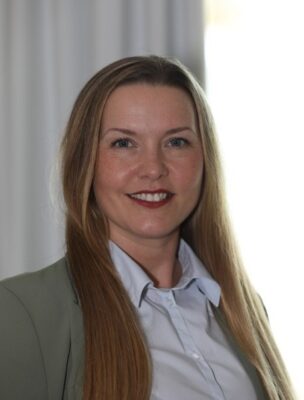

Adam Pernell is the Director of Maritime at the CHIRP Charitable Trust. Through his work at CHIRP, Adam seeks to ensure that everyone working in the maritime industry, especially seafarers are empowered to anonymously report safety concerns. He and the CHIRP team share lessons learned and best practices with the maritime sector and lobby for change to make the industry a safer place to work. Adam has been a professional mariner all his adult life, initially spending 26 years as an officer in the Royal Navy and nearly 8 years as a harbourmaster of ports along the UK’s southern coast. He has significant experience managing people, budgets, and driving organisational change in a wide range of multi-disciplinary appointments, both at sea and ashore, in the defence, private industry, and public sectors.
Professor Turan is a leading expert in shipping safety. He has made significant contributions to safety-related rules at various platforms, including the IMO. His work involves investigating maritime accidents and developing solutions to mitigate safety-critical conditions. He has been part of over 20 EU projects, including the FP7 SEAHORSE project, which received the LR-RINA Maritime safety award in 2017, and the EU-funded SAFEMODE project. In 2018, he was awarded the TRA Vision Senior Researcher award by the European Commission.
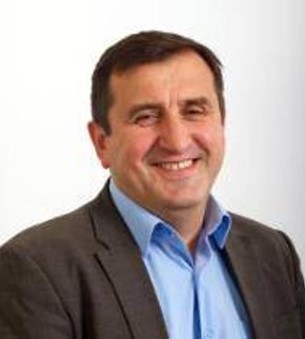
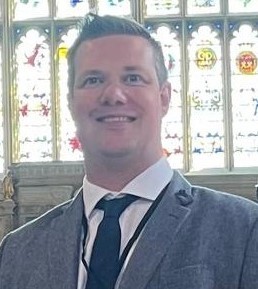
Martin White is a serial entrepreneur and innovator in the maritime industry.
He is the Founder and CEO of Stream Marine Group (est. 2014), the UK’s largest short‑course maritime training provider and the first globally accredited under the IGF Code for alternative fuel safety training.
In 2021, Martin founded Intelligent Seas, pioneering the use of artificial intelligence in maritime education. A year later, in 2022, he co‑founded Tite Street Capital, an asset management and investment advisory firm.
In 2024, he launched Maritime Passport, the world’s first secure, globally connected digital seafarer identification platform. In 2025, he co‑founded Ever Ocean with Martin Crawford-an AI‑driven technology company helping the marine industry manage the risks associated with rapidly emerging alternative technologies.
Martin is passionate about driving innovation, sustainability, and safety across the global maritime sector, helping to future‑proof the industry through technology and leadership.
